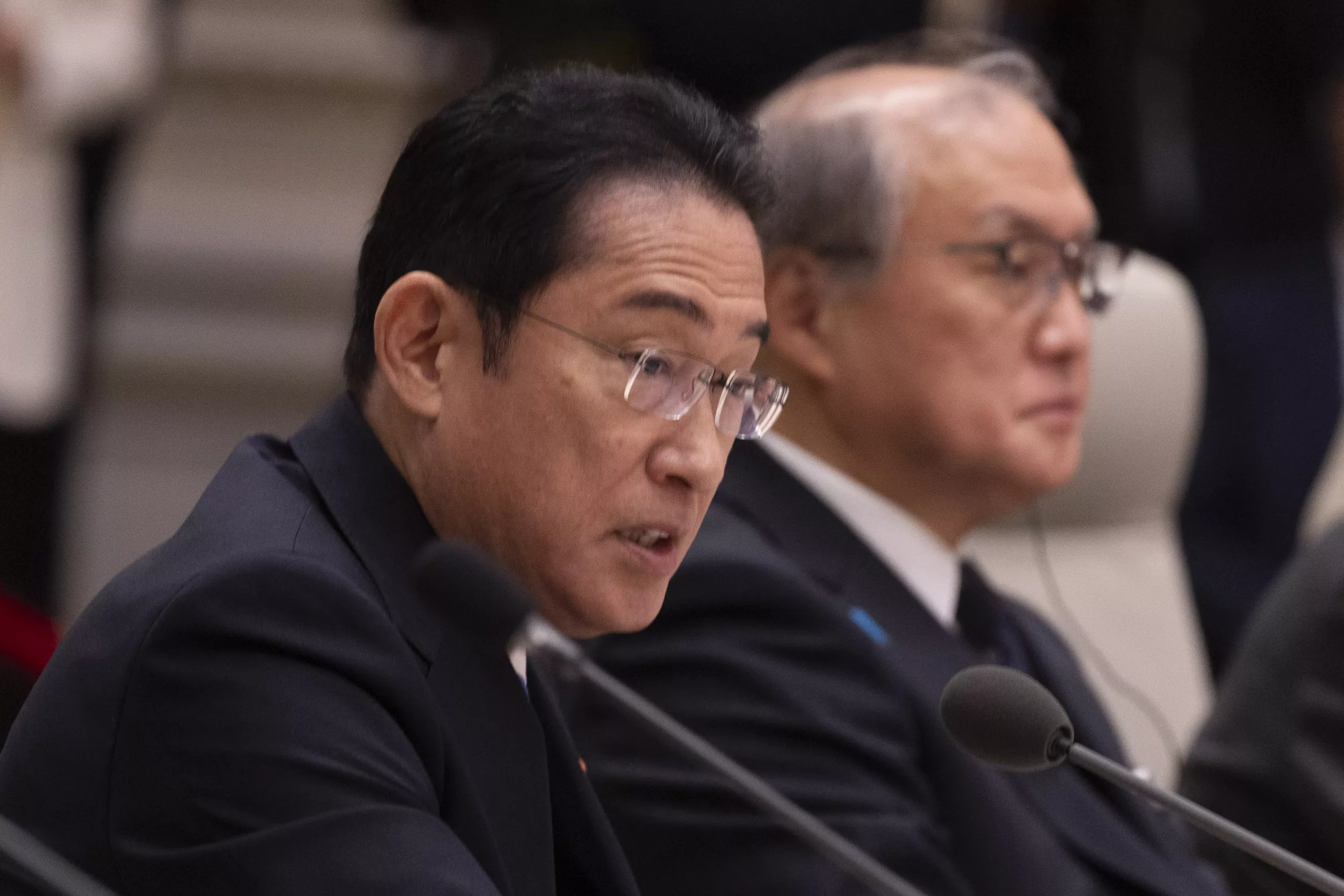
China, Japan, and South Korea discussed North Korea’s nuclear weapons program during their three-way summit in Seoul on Monday, with nuclear-armed Pyongyang announcing it intends to launch another spy satellite in the coming days.
“We reiterated positions on regional peace and stability, denuclearization of the Korean Peninsula, and the abductions issue, respectively. We agree to continue to make positive efforts for the political settlement of the Korean Peninsula issue,” read a joint statement following the trilateral talks, the ninth held between the East Asian neighbors.
North Korea’s decades-old nuclear weapons program continues to be a source of tension with the South, Japan, and the United States. China, the North’s main ally, has in the past voted in favor of Security Council sanctions over the Kim Jong Un regime’s pursuit of nukes but, in recent years, has vetoed resolutions to strengthen the sanctions regime.
North Korea swiftly condemned Monday’s statement, saying its sovereignty was being “seriously violated” in ways that deviate from international law.
“It is a mockery of and trickery against the regional countries and the international community that the ROK (Republic of Korea) is talking about ‘denuclearization,’ peace and stability,'” a North Korean Foreign Ministry spokesperson wrote in a statement published by the state-owned Korean Central News Agency.
Seoul is responsible for a “grave security crisis” on the peninsula and wider region by strengthening a “military alliance for aggression with hegemonic forces outside the region,” the spokesperson added in an apparent reference to South Korean ally the United States.
Although an armistice brought three years of conflict to an end in 1953, the two Koreas have never signed a peace treaty and remain technically at war.
Also on Monday, the North launched a missile that prompted Japan to issue an evacuation alert in its Okinawa prefecture. The warning was called off half an hour later after the rocket reportedly disappeared from radar, apparently falling into the sea.
It was the latest in the high-frequency series of tests carried out by the reclusive country in recent months, which have included intercontinental rockets and those capable of being mounted with a nuclear warhead.
That same day, North Korea announced it planned to launch another surveillance satellite by June 4.
The country successfully put one such spacecraft, Malligyong-1, into orbit in November. The launch was a violation of United Nations sanctions meant to curb the development of technology that could serve North Korea’s ballistic missile programs.
Pyongyang said the satellite project is necessary for self-defense and has pledged to launch three more this year.
The launch further chilled North-South relations, with Seoul responding by partially pulling out of a 2018 military agreement meant to reduce tensions. Pyongyang then abandoned the pact entirely.
South Korea has since sent up a pair of its own spy satellites to more closely monitor its northern neighbor.






